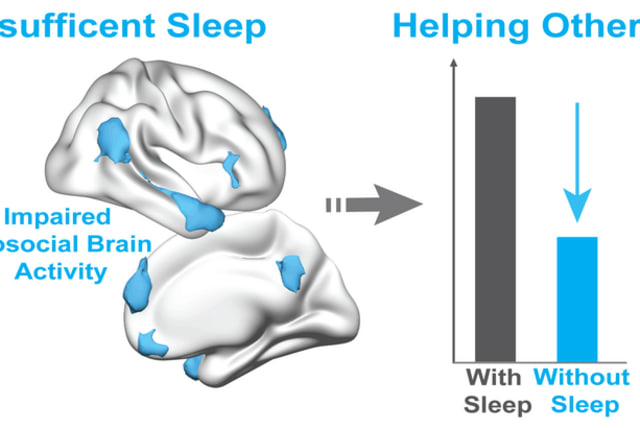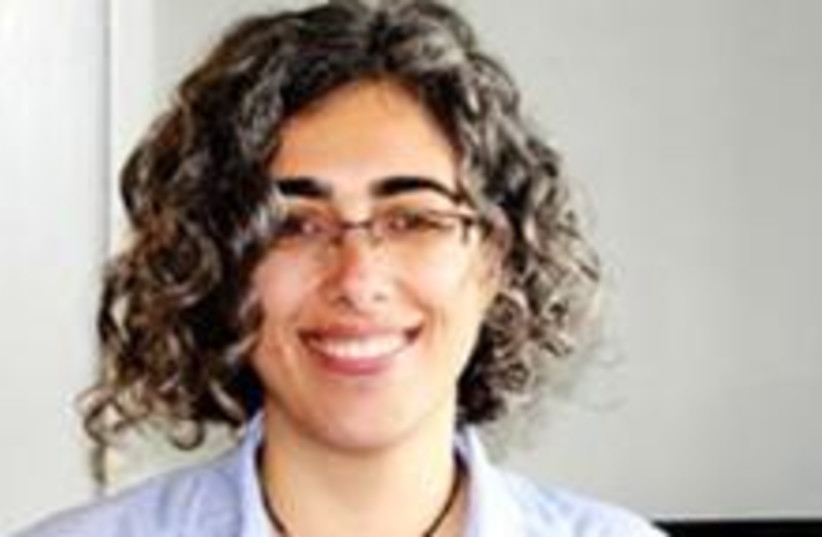Sleepless and selfish: Lack of shuteye makes altruism go down the drain

Israeli sleep medicine experts have determined that a large number of adults and teens here get less than the recommended seven hours of sleep per night thanks to social media, TV, homework, etc.
Getting too little sleep at night not only makes you groggy during the day, it also has been found to make people less generous and willing to help others, according to a new study from the University of California at Berkeley.
It is one of the foundations of civilized society to help another human being, but lack of sleep blunts this fundamental human attribute, with real-world consequences, according to UC Berkeley research scientist Eti Ben Simon and UC Berkeley psychology professor Matthew Walker. They published their findings in the latest issue of PLOS Biology under the title “Sleep loss leads to the withdrawal of human helping across individuals, groups and large-scale societies.”
Israeli sleep-medicine experts have determined that a large number of Israeli adults and teens get less than the recommended seven hours of sleep per night thanks to social media, videos, TV, homework, housework and more.
Lack of sleep is known to be associated with an increased risk of cardiovascular disease, depression, diabetes, hypertension and premature death. But these new discoveries show that it also impairs our basic social conscience and willingness to help other people.
In one portion of the new study, the scientists showed that charitable giving in the week after the beginning of Daylight Saving Time, when residents of most states “spring forward” and lose one hour of their day, dropped by 10% – a decrease not seen in states that do not change their clocks or when states return to standard time in the fall.
The study adds to a growing body of evidence showing that inadequate sleep not only harms the mental and physical well-being of an individual, it also compromises the bonds between individuals and even the altruistic sentiment of an entire nation.
“Over the past 20 years, we have discovered a very intimate link between our sleep health and our mental health,” Walker said. “Indeed, we’ve not been able to discover a single major psychiatric condition in which sleep is normal. But this new work demonstrates that a lack of sleep not only damages the health of an individual, but degrades social interactions between individuals and the very fabric of human society itself. How humans operate as a social species seems profoundly dependent on how much sleep we are getting.”
Ben Simon said: “We’re starting to see more and more studies, including this one, where the effects of sleep loss don’t just stop at the individual, but propagate to those around us. If you’re not getting enough sleep, it doesn’t hurt just your own well-being, but [also] the well-being of your entire social circle, including strangers.”
Three separate studies
The report describes three separate studies that assessed the impact of sleep loss on people’s willingness to help others. In the first study, the scientists placed 24 healthy volunteers in a functional magnetic resonance imager (fMRI) to scan their brains after eight hours of sleep and after a night of no sleep. They found that areas of the brain that form the theory of mind network, which is engaged when people empathize with others or try to understand other people’s wants and needs, were less active after a sleepless night.
“When we think about other people, this network engages and allows us to comprehend what other person’s needs are: What are they thinking about? Are they in pain? Do they need help?” Ben Simon said. “However, this network was markedly impaired when individuals were sleep-deprived. It’s as though these parts of the brain fail to respond when we are trying to interact with other people after not getting enough sleep.”
The second study
In a second study, they tracked more than 100 people online over three or four nights. During this time, the researchers measured the quality of their sleep – how long they slept and how many times they woke up – and then assessed their desire to help others, such as holding an elevator door open for someone else, volunteering or helping an injured stranger on the street.
“Here, we found that a decrease in the quality of someone’s sleep from one night to the next predicted a significant decrease in the desire to help other people from one subsequent day to the next,” Ben Simon said. “Those with poor sleep the night prior were the ones who reported being less willing and keen to help others the following day.”
What did the study finish off with?
The third part of the study involved mining a database of three million charitable donations in the US between 2001 and 2016. Did the number of donations change after the transition to Daylight Saving Time and the potential loss of an hour of sleep? They found a 10% drop in donations, but this same dent in compassionate gift-giving was not seen in regions of the country that did not change their clocks.
“Even a very modest amount of sleep deprivation – just the loss of one single hour of sleep opportunity linked to Daylight Saving Time – has a very measurable and very real impact on people’s generosity and, therefore, how we function as a connected society,” Walker said. “When people lose one hour of sleep, there’s a clear hit on our innate human kindness and our motivation to help other people in need.”
“Sleep is an incredible lubricant to pro-social, connected, empathic, kind and generous human behavior,” he said. “In these divisive times, if there was ever a need for a strong, pro-social lubricant to enable the very best version of ourselves within society, now seems to be it. Sleep may be a wonderful ingredient that enables the alacrity of helping between human beings.”
Ben Simon said: “Promoting sleep, rather than shaming people for sleeping enough, could very palpably help shape the social bonds we all experience every day.”
“Sleep is essential for all aspects of our physical, mental and emotional lives,” she said. “When sleep is undervalued in society, not only do we get sleep-deprived doctors, nurses and students, but we also suffer from unkind and less empathic interactions on a daily basis. It is time as a society to abandon the idea that sleep is unnecessary or a waste and, without feeling embarrassed, start getting the sleep that we need. It is the best form of kindness we can offer ourselves, as well as the people around us.”
Jerusalem Post Store
`; document.getElementById("linkPremium").innerHTML = cont; var divWithLink = document.getElementById("premium-link"); if (divWithLink !== null && divWithLink !== 'undefined') { divWithLink.style.border = "solid 1px #cb0f3e"; divWithLink.style.textAlign = "center"; divWithLink.style.marginBottom = "15px"; divWithLink.style.marginTop = "15px"; divWithLink.style.width = "100%"; divWithLink.style.backgroundColor = "#122952"; divWithLink.style.color = "#ffffff"; divWithLink.style.lineHeight = "1.5"; } } (function (v, i) { });

